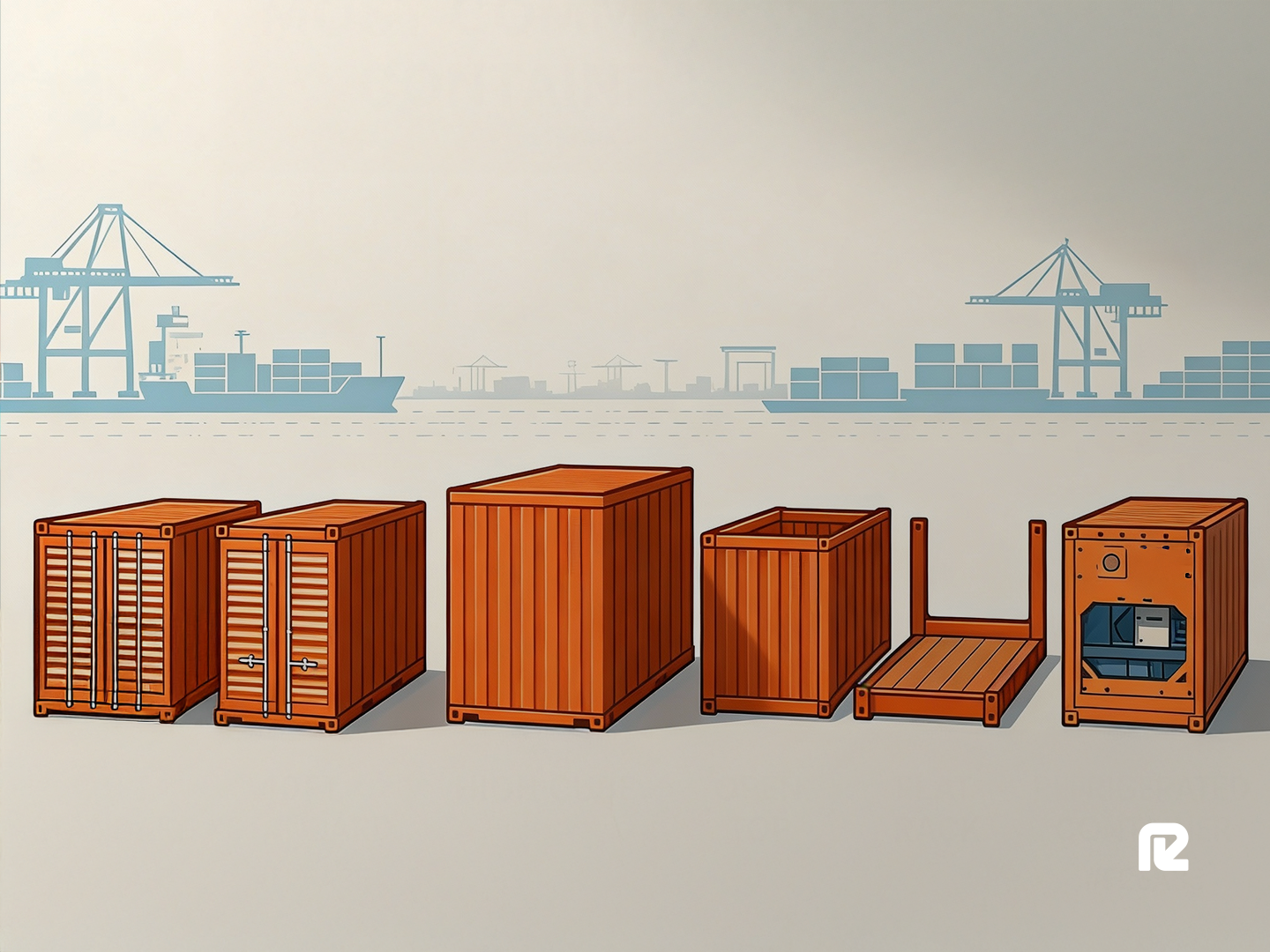Who are Freight Forwarders? A Look Behind the Scenes


When a mining company in the DRC needs to move equipment to Durban, they rely on freight forwarders, the behind-the-scenes professionals who keep goods moving and operations on schedule. The freight forwarding team at Reload isn’t fazed by last-minute changes or shifting conditions. Instead, they specialize in delivering solutions that make complex supply chains feel almost simple.
This article goes through exactly what freight forwarders are, their responsibilities, and how you can expect the entire process to work when shipping your goods.
What Is a Freight Forwarder
A freight forwarder is a service that coordinates the entire end-to-end logistics process on behalf of shippers. They don’t physically move the goods themselves, but they organize the transportation with expert knowledge of specific terrains, legalities, and technical nuances of international logistics.
The responsibilities of a freight forwarder include negotiating rates with carriers, arranging the best routes depending on the transport type and the cargo, managing documentation like a bill of lading, and ensuring goods pass customs clearance.
What Does a Freight Forwarder Do?
Freight forwarders have many different roles, and their responsibilities are broad compared to those of slightly different services, like freight brokers.
In practice, this is what you can expect from a freight forwarding service:
· Coordinating International Shipping: The main purpose of a forwarder is to organize transport via plane, truck, sea, or train and to find the most efficient routes along with modes of transport depending on the client's budget, time restraints, and product type. Freight forwarders also manage multimodal solutions; this is where a shipment requires more than one leg of transport for it to arrive at its destination, like combining trucks and trains.
· Managing Documentation: This includes bills of lading, export declarations, and customs paperwork, which is crucial to get right to avoid expensive delays and penalties. Forwarders ensure paperwork is prepared and submitted on time, and all comply with complex international trade laws.
· Advising on Regulations and Compliance: This is particularly valuable in areas with strict or often-changing trade laws, which can vary across borders, like within a large region like Southern Africa. Freight forwarders can help clients stay compliant by staying ahead of those evolving rules and advising on what will be needed.
· Cargo Insurance and Risk Mitigation: As well as basic insurance, forwarders can recommend coverage depending on vulnerabilities within specific client supply chains.
· Tracking and Monitoring Shipments: Through GPS systems, freight forwarders can provide updates from the carrier to the client on the visibility of the shipment’s journey and how it is progressing.
· Solving Logistical Issues Up Front: Sometimes there will be a port strike or severe weather; in these cases, the job of the freight forwarder is to act fast in rerouting the shipments. This ability to adapt quickly lowers the risk of downtime and keeps the supply chain moving.
Navigating cross-border logistics across Southern Africa can be especially complex due to many different challenges. There’s quite an inconsistent infrastructure, as well as delays at borders being common, and a huge variation in regulations from one country to the next.
In these scenarios, freight forwarders are invaluable partners to have on your side, firstly because they are well-versed in navigating these particular challenges, and secondly because they are always proactively planning for those situations. By choosing the right routes, preparing documentation in advance, and coordinating closely with officials and local agents, they ensure their client's goods move smoothly throughout Southern Africa’s intricate logistics landscape.
The Freight Forwarding Process: How It Works
When just getting started shipping goods, it might sound as simple as loading products onto a container and sending it on its way, but it quickly becomes clear that a lot more to it than that. Below are the steps of shipping goods in basic terms:
Planning the Shipment
The forwarder looks into timelines, costs, routes, and special requirements that might be necessary for the cargo, like temperature control.
Coordination with the Carrier
Freight forwarders book space with shipping lines, airlines, or trucking companies based on clients’ cargo size, urgency, and budget.
Handling Documents
There is endless documentation that comes with shipping, including invoices, packing lists, and certificates of origin. Having the correct paperwork in check avoids delays along the way, which a freight forwarder will be an expert in.
Customs Clearance
A forwarder ensures the cargo complies with any destination requirements and pays duties or tariffs where applicable.
Cargo Tracking
Today’s forwarders use tech tools to offer real-time visibility, giving clients peace of mind.
Final Delivery
Once cleared at the port or airport, freight is moved to the final destination, which could be a factory, warehouse, retail hub, or distribution center.
Freight Forwarders vs. Other Logistics Providers
Different logistics provider services often get confused with freight forwarders, but there are clear differences between them all:
· Carrier: A company that physically transports goods. Freight forwarders contract carriers but don’t own vehicles or ships.
· Courier: Handles door-to-door parcel delivery, usually for smaller packages.
· Broker: Typically arranges transport or customs clearance for a fee, often specializing in one function.
· Forwarders: Provide organization for the entire logistics supply chain and are essential partners for manufacturers and traders.
Services Offered by Freight Forwarders
Freight forwarders offer a wide range of services, at Reload Logistics, these include:
Ground Shipping Services - Handle both domestic and cross-border transport throughout the entire Southern Africa area using a combination of owned fleet and vetted partners. Reload has strategic hubs in Zimbabwe, Zambia, Mozambique, and the DRC that ensure smooth movement of clients' cargo and are specialized in remote regions.
Sea Freight Service - For large and non-urgent shipments, Reload provides organization of cost-effective ocean freight organization. This includes services such as consolidated full-container loads (FCL), and less-than-container loads (LCL), port documentation management, and transshipment logistics.
Additional Service - Warehousing, distribution, packaging, and labeling: Reload offers value-added services aimed at supporting the full supply chain.
Why Businesses Work With Freight Forwarders
Whether you're a multinational or a local exporter, there are real advantages to working with a trusted freight forwarder:
· Market Experience and Knowledge: Freight forwarders have in-depth knowledge of their covered regions, meaning they’ll know which routes are congested, which carriers are reliable, and which borders have strict controls. This can make the difference between a delivery that’s on time, and one that’s delayed.
· Optimized Cost: Because freight forwarders have strong relationships with their contacts, they’re more likely to obtain discounts and negotiated shipping rates.
· Emergency Management: Freight forwarders have strong contingency plans and alternative routes ready to go to keep cargo moving in the inevitable event of strikes or bad weather.
· Customized Solutions: Forwarders always aim to adapt to cargo needs, budget constraints, and delivery timelines depending on their clients, providing tailored logistics services.
Freight forwarders play a critical, but often unseen, role in making supply chains run smoothly. Designing smart, flexible strategies that anticipate challenges, minimize risk, and keep goods moving, even when conditions are unpredictable.
For businesses operating in Southern Africa, this role is even more vital. With unstable infrastructure, cross-border complications, and quickly changing regulations, moving goods across the region takes local knowledge and trusted networks.
From managing multimodal shipments to offering warehousing and risk mitigation, Reload’s freight forwarding team operates as a true extension of your business, focused on getting your cargo where it needs to go, on time and on budget.
Ready to simplify your supply chain and go further with confidence? Talk to our team to learn how Reload can support your freight forwarding needs across Africa and beyond.
Categories






